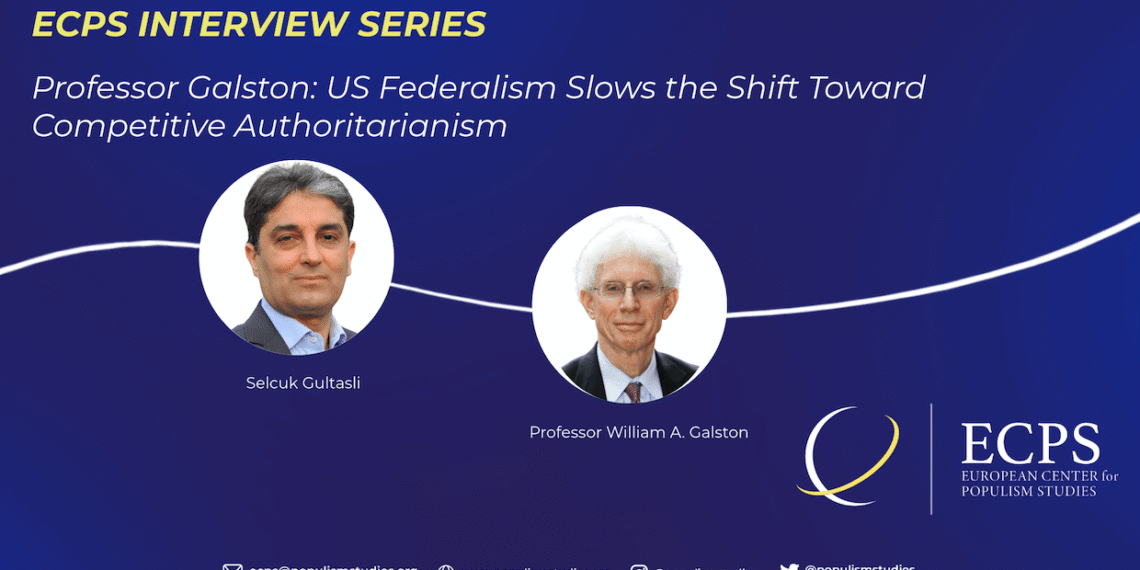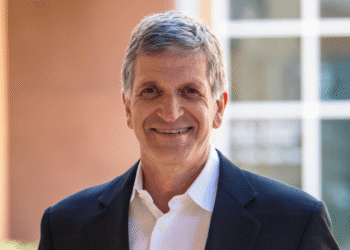In this incisive conversation, Brookings scholar Professor William A. Galston argues that America’s decentralized system remains a crucial brake on executive overreach. While warning of real risks, he maintains, “We’re not there yet,” distinguishing the US from harder cases of institutional capture abroad. Professor Galston spotlights federalism and the courts as the decisive arena of resistance—urging institutions to defend their prerogatives through litigation, “not street protests but the law.” He assesses the influence of Project 2025, redistricting fights in Texas/California, and the politics of immigration, crime, and DEI, noting potential backlash among centrist voters. The result is a clear-eyed appraisal of democratic resilience—and the legal contests that will shape whether the US moves toward or away from competitive authoritarianism.
Interview by Selcuk Gultasli
Giving an in-depth interview to the European Center for Populism Studies (ECPS), Professor William A. Galston — senior fellow and the Ezra K. Zilkha Chair in the Governance Studies program at Brookings Institution and a leading authority on American governance, populism, and institutional resilience — provides a comprehensive analysis of the evolving dynamics of US democracy under President Donald Trump’s second administration. Drawing on his deep expertise in political institutions and constitutional law, Professor Galston examines how federalism, legal contestation, and civil society remain central to safeguarding checks and balances amid mounting executive centralization.
As the title emphasizes, “US. Federalism Slows the Shift Toward Competitive Authoritarianism,” Professor Galston underscores that America’s decentralized political structure continues to serve as a buffer against executive overreach. He stresses that, despite concerns about democratic backsliding, the US is not yet on par with countries such as Hungary, Turkey, or India, where institutional capture has been far more extensive. “We’re not there yet,” Professor Galston explains, “and I am hopeful that we’ll never get there.”
A recurring theme throughout the interview is the growing role of law as the principal arena of political struggle. Professor Galston argues that the resilience of US democracy increasingly depends on institutions defending their legal prerogatives: “Pushing back, using not street protests but the law, will be the most important venue of contestation.”
This dynamic is vividly illustrated in his discussion of a recent legal battle involving Harvard University, which challenged the Trump administration’s attempt to withhold federal research funds. A federal judge sided with the university, ruling that the administration’s actions were unconstitutional. For Professor Galston, this episode demonstrates that institutions “with the will to defend their legal rights can push back — and push back effectively.”
The interview also delves into the strategic influence of Project 2025 and the Heritage Foundation in shaping Trump’s second-term agenda. Professor Galston notes that the initiative has successfully translated its ideas into both institutional frameworks and personnel appointments, allowing the administration to pursue expansive interpretations of executive authority while testing the limits of constitutional constraints.
Additionally, Professor Galston examines redistricting battles, such as those in Texas and California, highlighting how federalism enables both parties to counterbalance each other’s maneuvers, thereby slowing the concentration of power at the national level.
Finally, Galston reflects on the broader trajectory of US democracy, warning that the coming years will be decisive in determining whether constitutional norms can withstand mounting pressures. Yet he remains cautiously optimistic, noting that state governments, universities, professional associations, and civil society are “waking up” to the importance of defending democratic principles.
This interview offers a nuanced, scholarly perspective on the complex interplay between institutional resilience and executive ambition, providing crucial insights into America’s democratic future.


